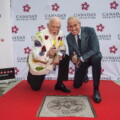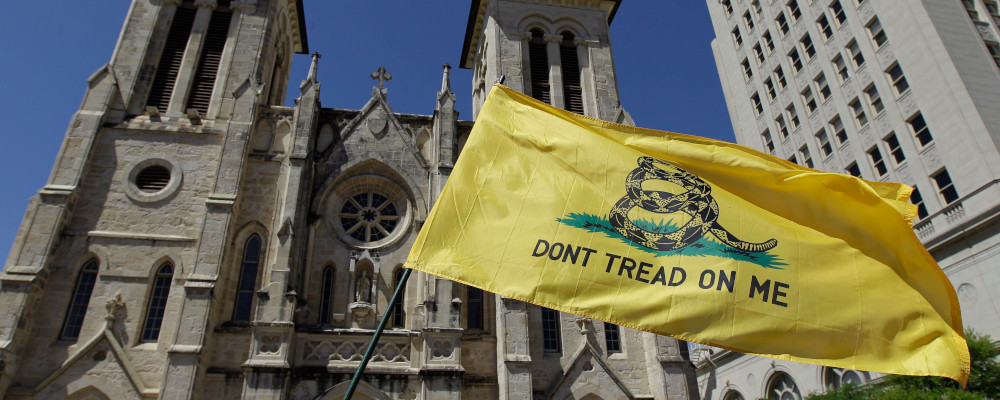Review of: The Individualists
Authors: Matt Zwolinski and John Tomasi
Publisher: Princeton University Press, 2023
In these pages last year, Ken Boessenkool summarized his view of libertarians:
Libertarians don’t just want smaller government, they want pretty much no government. They don’t just want lower taxes, but essentially view taxation as confiscation at gunpoint. And they don’t just want free trade, they want free-for-all trade.
Libertarians care more about what policy costs than about what policy does. Libertarianism is what conservatives are sometimes left with with regards to their political programmer when their centre-left opponents co-opt their mainstream ideas.
Suffice it to say, I don’t recognize myself here, and neither would most libertarians. (Off the top of my head, we’re against the draft, even if it’s cheaper.) However, it tracks with the popular understanding of libertarianism. Still, Boessenkool is an experienced conservative strategist who worked with libertarians for decades. How did he end up with the same reductive, unflattering view as those who have long seen themselves as libertarianism’s political opponents?
The Individualists, an intellectual history of libertarianism by Matt Zwolinski and John Tomasi, can help make sense of not just libertarians but of an increasingly confusing political landscape.
Zwolinski and Tomasi argue that commitments shared by libertarians since their emergence around 1850 have inspired different interpretations of what follows from those commitments, depending on the individuals that held them and the political context in which they lived.
The core commitments of libertarianism—private property, skepticism of authority, free markets, spontaneous order, individualism, and negative liberty—can support more than Boessenkool’s stripped-down description of libertarianism. The Individualists explores how these “political markers” have formed a common thread through political theories that offer strikingly different answers to questions about the size and scope of government, big business, and responses to poverty, racial injustice, and global justice.
Contra socialism
The Individualists presents several examples in which “the full libertarian position did not come into its own until it had something to push against”. State socialism was both the first and the most enduring thing against which libertarianism pushed.
Libertarianism radicalized classical liberalism in response to the rise of state socialism around 1850. In Britain and France, this gave many of the earliest libertarians a conservative bent, with largely economic goals that look familiar. But libertarian-conservative fusionism in opposition first to Roosevelt’s New Deal and then during the Cold War likely informs how most people today think of libertarianism. Within fusionism, libertarianism sat on the political Right, pushing for smaller government than conservatism generally. This was a relatively productive political alliance, but there was friction not just within the alliance, but within libertarianism.
Among “strict libertarians” (defined in The Individualists as those who see their policy commitments flowing logically from their philosophical beliefs) the fiery personalities of Murray Rothbard and Ayn Rand clashed when it came to issues like how to approach business and when to support war. Strict libertarians also clashed with “broad libertarians” (qualified as libertarians for their membership in the broader liberty movement) like Milton Friedman and F.A. Hayek, who were attacked for insufficiently radical positions.
It’s easy to laugh at the high drama of low stakes, but it would be mistaken. During the height of fusionism, libertarianism really did have access to power. Think of Ronald Reagan reading The Freeman (a publication of one of the oldest American libertarian organizations, the Foundation for Economic Education), or Margaret Thatcher slamming down a copy of Hayek’s Constitution of Liberty. While libertarians were hardly monolithic (few political movements are), that didn’t presuppose political influence.
Academically, libertarians had heft, too. The Individualists reminds us that Harvard philosopher Robert Nozick credited a long conversation with Murray Rothbard for inspiring his book Anarchy, State, and Utopia. Libertarian economists Ludwig von Mises and F.A. Hayek were crucial voices on the side of markets in the economic calculation debate about whether state socialism could deliver better returns than a market economy.
The fall of the Berlin Wall in 1989 was a triumph for human liberty and dignity. It was also the beginning of the end of Cold War fusionism, and of the political relevance of the most salient arguments libertarians had been making for half a century.
Where next?
Libertarianism seems stripped down and adrift in part because libertarians, like conservatives, are casting about for new political homes, and trying to cast off the baggage of old political context.
We can better imagine where libertarianism might go without the threat of state socialism to unify it or to unite it with conservatism by looking to libertarianism’s past. Socialism isn’t the only threat against which libertarians have defined themselves.
Early American libertarians, in fact, often identified as socialists—or anarchists. These libertarians aligned themselves against slavery and the illegitimacy of the social contract, and the government, that it implied. In this tradition, libertarian heroes look less like Ayn Rand and Milton Friedman and more like Lysander Spooner, who started an illegal post office to undermine the idea of state monopolies, or even John Brown, who launched a failed insurrection to end slavery.
Back across the pond, Richard Cobden and John Bright built a political alliance in opposition to imperialism and war, believing that ending the protectionist Corn Laws in the United Kingdom would move the country away from paternalistic imperialism and towards a more peaceful world, perhaps one without meaningful national borders.

Libertarianism without socialism isn’t libertarianism without purpose, after all. But it might look quite different. Zwolinski and Tomasi suggest that post-Cold-War libertarianism has begun to split into three camps: paleo-libertarianism, bleeding-heart libertarianism, and Left-libertarianism.
Paleo-libertarianism emphasizes a perceived link between freedom and culture. They emphasize the role of property rights in preserving national values by providing a theoretical basis for the exclusion of outsiders (hotly contested by other libertarians). Paleo-libertarians assume that people are basically conservative and are wary of cosmopolitanism and progressive values. This strain of libertarianism fits neatly with the “New Right” and national conservatism—though an alliance hasn’t yielded the success and influence that Cold War libertarianism enjoyed.
Bleeding-heart libertarians are motivated by concerns about social justice rooted in their belief that spontaneous orders can yield both good and bad outcomes, and believe that “Individual freedom is an ideal to be pursued together.” Left-libertarians are motivated by concerns about concentrated and monopolistic power, including corporate power. For them, “Liberty is about solidarity—without the state.” The goals of Left- and bleeding-heart libertarians may be compatible, but paleo-libertarians oppose both concerns about social justice and anything associated with the Left. Erstwhile allies may find themselves standing against one another, but Zwolinski and Tomasi only predict that the fight is far from over.
In exploring the history of libertarian thought, The Individualists provides a model for understanding how political movements can shift with the contexts they’re in and the personalities that drive them. Come for the explanation of why a Cold War political lens is inappropriate for understanding libertarianism today, stay for another way of thinking about our political world.
Recommended for You

Why violent crime is surging in Canada: DeepDive
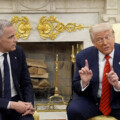
The Supreme Court slaps down Trump’s tariffs—but Canada isn’t in the clear yet: The Weekly Wrap
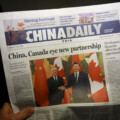
‘They will walk all over us’: Former security analyst on how Canada is leaving itself open to more Chinese interference
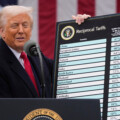
‘Huge implications’: The Roundtable on the U.S. Supreme Court’s bombshell tariff ruling against Trump
